#harri shanahan
Text
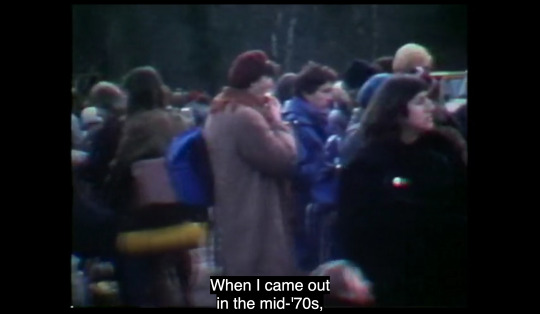
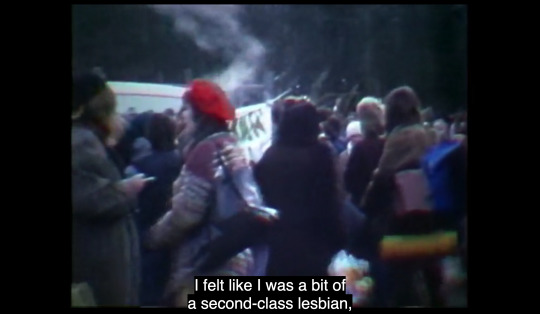
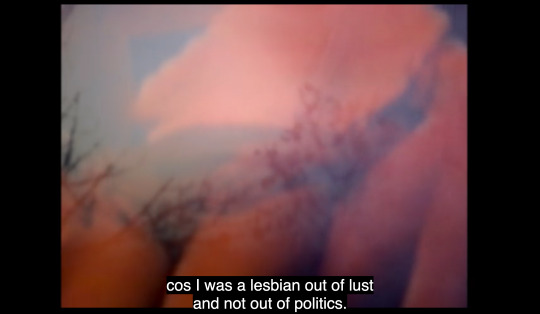
Rebel Dykes (2021) dir. Harri Shanahan & Sian Williams
#rebel dykes (2021)#rebel dykes#harri shanahan#sian williams#lust & politics#dykes on film#documentary#dyke kitsch etagere
684 notes
·
View notes
Text
Meat and Eggs are Health Foods. Ignore Technocratic Misanthropy.
Meat and Eggs are Health Foods. Ignore Technocratic Misanthropy.
Since early 2020, cardiovascular disease has killed almost twice the amount of people as the SARS-Cov-2 virus, and poor cardiovascular health increases the chance of mortality from that virus by 10.5%.
Cardiovascular disease is the #1 cause of death globally, killing almost 20 million people per year, and rates and resultant mortality continue to rise.
We often associate “fatty foods”,…

View On WordPress
#american heart association#ancestral diet#atherosclerosis inflammation#bacon health food#bart kay#big pharma#carnivore diet#Cate Shanahan#cholesterol does not cause heart disease#cholesterol is good for you#conspiracy theory#delta 15 hydrogen isotope carnivore#grain brain#grimhood#harry serpanos#holistic health diet#how to prevent heart disease#hyperlipid#ken berry md#keto diet for heart health#ketosis#lchf#libertarian nutrition#low carb for heart health#mangan150#omega-6 inflammation#oxidative stress#paul saladino#pd mangan#ray peat
2 notes
·
View notes
Text
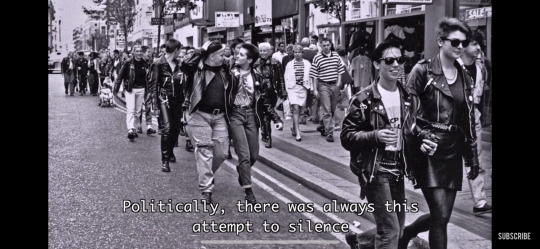

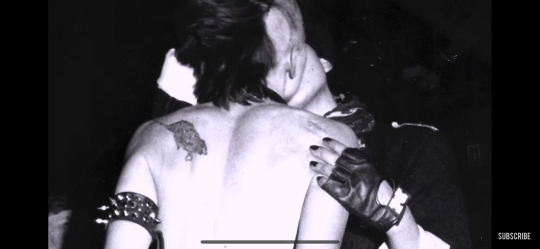
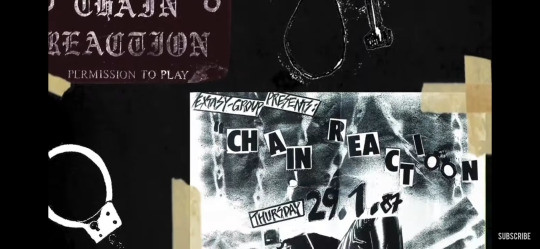




Watch the trailer here
“REBEL DYKES is a rabble-rousing documentary set in 1980s post-punk London. The unheard story of a community of dykes who met doing art, music, politics and sex, and how they went on to change their world.”
The film covers a whole host of women’s stories in a mix of animation, visuals from archives including never before seen personal archives and oral histories told by former Rebel Dykes themselves, from women’s peace camps at Greenham common to the BDSM nightlife at chain reaction, from sex toys to battling street violence, homelessness, homophobia and transphobia to section 28, the aids crisis, publishing and the feminist sex wars. Honestly it is a great accessible introduction to understanding how lesbian culture and politics has evolved since the 80’s.
Some of the Dykes features include Photographer Del La Grace Volcano, Drag King Karen Fisch, Writer Roz Kaveny and so many others
Directed by Harri Shanahan & Siân A. Williams, Produced by Siobhan Fahey
It is available to rent for £3.49 here (including Q&A) or here for £3.50
(It’s also available on Amazon prime but tbh I’m not gonna promote that I’d only buy it there as a last resort if nothing else works)
As a lot of work from marginalised dykes went into making this documentary it is not widely available for free, however keep an eye out for local viewings or any platforms showing it for free for a limited time (around pride month/lgbtq+ history month etc) I will update this if I find any!
I would also highly encourage sharing it with your friends if you do buy it! And reblogging this post!
#rebel dykes#dykes#I promised a post about this#leather dyke#lesbian#bisexual#lesbian history#sapphic#wlw#nblw#lesbian nsft#dyke nsft#butch#butch dyke#dyke#butch lesbian
719 notes
·
View notes
Text

i'd like to congratulate sex for winning the war on sex
for those of you not researching lesbian history, let me introduce you to:
THE LESBIAN SEX WARS OF THE 1980S
Historian Lillian Faderman writes 'In the lesbian community, the 1970s was dominated by cultural feminists - especially lesbian-feminists [women who believed choosing to be a lesbian was the ultimate rejection of patriarchy] and middle-class lesbians - who generally shared a mistrust of masculine/feminine roles, sexual "violence" (whether real or in play), and pornography, which they saw as a manifestation of the misguided male sex drive.' (Faderman, 2012: 249). Lesbian sex in the feminist community was all about equality, and the slightest whiff of anything "masculine", which could be anything from buying a woman a drink to vaginal penetration, was decried as politically incorrect.
However, in the early 1980s a group of lesbians grew which wanted to liberate lesbian sex the same way gay men and heterosexuals had found freedom and fun in sexuality over the course of the "free love" era of the 60s and 70s. They argued that restricting sexual practices in the way that was required of the radical lesbian-feminist was oppressive, and that assertive sexuality when employed in a consensual environment between two women couldn't possibly be replicating patriarchal gendered violence, and that assertive sexuality was not inherently male.
It was a backlash against the biological essentialism prevalent in feminism at the time which encouraged women to embrace their "natural" feminine traits. Although this often involved destigmatising female bodily functions and sexuality, it also uncritically privileged 'women's biological, natural capabilities over an examination of cultural gender differences' (Dolan, 1987: 158), which raised red flags for many feminists of colour at the time who recognised a biological essentialism all too similar to the type used in racist doctrines.
'And so, when some lesbians at the end of the decade began to encourage lesbian interest in pornography and even strip shows and certain forms of violent (albeit consensual) sex, cultural feminists felt betrayed and furious. It was to them as though the enemy - male-identified perverts in dyke clothing - had all the while been living in their own camp and were now attempting to weaken the ranks by disseminating propaganda in support of everything the cultural feminists most despised: pornography, sexual role playing (including s/m "violence" and butch/femme relationships), and even public sex.' (Faderman, 2012: 250)
A large part of the lesbian reclamation of sexuality was rediscovering the butch/femme roles that had developed in the bar culture of the 50s and 60s, and which had been wholeheartedly rejected by lesbian-feminists in the early 70s as replicating patriarchal heterosexual relationship structures. These neo-butches and femmes felt that this strict binary way of thinking about gender was more restrictive than any kind of role-play engaged in by a sexual minority, and further argued that by having a female body taking in and claiming the "male" appearance and role, it further undermines the assumption that masculine power is solely the domain of the man, and therefore undermining the male/female binary that is the cornerstone of patriarchal oppression.
Sources:
Odd Girls and Twilight Lovers: A History of Lesbian Life in Twentieth-Century America by Lillian Faderman (2012, New York: Columbia University Press)
'The Dynamics of Desire: Sexuality and Gender in Pornography and Performance' by Jill Dolan (1987, Theatre Journal Issue 39 Vol. 2, pp. 156-174)
See also:
Rebel Dykes dir. Siân A. Williams & Harri Shanahan (2021) (documentary)
28 notes
·
View notes
Text
there's something about Big Politics discussions that outs that we (and I include myself in that, I have also done this in the past and may do so again!) can get very exclusionary when we're trying to make big changes, for example when feminism was attempting to (and in places still does attempt to) exclude lesbians and black women and working class women and immigrants and trans people, etc. that's all very well documented, I don't think it's a hot take
or trans people being excluded from LGBT-acceptance laws both in the past and today (again, well documented), although I note that LGB people really stepped up in England and the UK to point out the double-standard of parliament and the prime minister trying to make conversion therapy illegal for everyone except trans people (and excepting religious conversion therapy, which, bleurgh, I see you government)
and the simplified argument for this is "well, now you're muddying the conversation, now you're making this Big Picture Thing too niche, too minority -- feminism isn't about issues that Black women face it's about issues that all women face," for example
if we acknowledge that there are minority groups within minority groups and marginalisation within marginalisation, then the risk is (one thinks) that nobody ends up getting anything, but we pinky promise that we'll get to you eventually, we've just got to get the Big Picture sorted first
and of course that never happens. marginalised people stay marginalised. the Big Picture doesn't include them
and so I think we have to be very careful when we talk about reproductive healthcare rights to include trans people and intersex people, because I'm seeing the same arguments again -- those groups are too niche, they're too minority, they're muddying the conversation, and I know exactly where it's coming from because it's happened before many times and it was never a thing then either
trans people and intersex people need just as much access to reproductive health and have far, far less, everywhere in the world
now that a Big Picture horrifying event has just gone down in America, it's important to not be so afraid for ones own and other cis perisex women's futures so as to not extend grace to others who are also heavily affected and often not allowed to talk about it at all, including in feminist spaces and other reproductive health political spaces
extending that grace does not take away your ability to fight for your rights. it gives you another set of allies, and a broader/more inclusive set of goals for the future
some sources: eat fire: my life as a lesbian avenger (kelly cogswell), trans history (susan stryker), rebel dykes (documentary, harri shanahan and sian williams), also google lavender menace lesbian group + the east london suffragettes (which there is also a book about that I haven't read yet), and this leslie feinberg speech and this angela davies speech
#politics#abortion rights#reproductive healthcare#women's rights#trans rights#intersex rights#book recs#documentary recs#it is important to lift up the voices of the unheard even and especially when you're afraid for yourself too#also does anyone else ever get a thrill at The angela davies#(I'm sure she'd not like that and I'm sorry I'm just... it's angela flipping davies! ok it's out of my system now I'm normal about it)#i wasnt sure id post anything about this but it's really been on my mind#so it will be just this
7 notes
·
View notes
Text
Second round of seed grants awarded to MIT scholars studying the impact and applications of generative AI
New Post has been published on https://sunalei.org/news/second-round-of-seed-grants-awarded-to-mit-scholars-studying-the-impact-and-applications-of-generative-ai/
Second round of seed grants awarded to MIT scholars studying the impact and applications of generative AI

Last summer, MIT President Sally Kornbluth and Provost Cynthia Barnhart issued a call for papers to “articulate effective roadmaps, policy recommendations, and calls for action across the broad domain of generative AI.” The response to the call far exceeded expectations with 75 proposals submitted. Of those, 27 proposals were selected for seed funding.
In light of this enthusiastic response, Kornbluth and Barnhart announced a second call for proposals this fall.
“The groundswell of interest and the caliber of the ideas overall made clear that a second round was in order,” they said in their email to MIT’s research community this fall. This second call for proposals resulted in 53 submissions.
Following the second call, the faculty committee from the first round considered the proposals and selected 16 proposals to receive exploratory funding. Co-authored by interdisciplinary teams of faculty and researchers affiliated with all five of the Institute’s schools and the MIT Schwarzman College of Computing, the proposals offer insights and perspectives on the potential impact and applications of generative AI across a broad range of topics and disciplines.
Each selected research group will receive between $50,000 and $70,000 to create 10-page impact papers. Those papers will be shared widely via a publication venue managed and hosted by the MIT Press under the auspices of the MIT Open Publishing Services program.
As with the first round of papers, Thomas Tull, a member of the MIT School of Engineering Dean’s Advisory Council and a former innovation scholar at the School of Engineering, contributed funding to support the effort.
The selected papers are:
“A Road-map for End-to-end Privacy and Verifiability in Generative AI,” led by Alex Pentland, Srini Devadas, Lalana Kagal, and Vinod Vaikuntanathan;
“A Virtuous Cycle: Generative AI and Discovery in the Physical Sciences,” led by Philip Harris and Phiala Shanahan;
“Artificial Cambrian Intelligence: Generating New Forms of Visual Intelligence,” led by Ramesh Raskar and Tomaso A. Poggio;
“Artificial Fictions and the Value of AI-Generated Art,” led by Justin Khoo;
“GenAI for Improving Human-to-human Interactions with a Focus on Negotiations,” led by Lawrence Susskind;
“Generative AI as a New Applications Platform and Ecosystem,” led by Michael Cusumano;
“Generative AI for Cities: A Civic Engagement Playbook,” led by Sarah Williams, Sara Beery, and Eden Medina;
“Generative AI for Textile Engineering: Advanced Materials from Heritage Lace Craft,” led by Svetlana V. Boriskina;
“Generative AI Impact for Biomedical Innovation and Drug Discovery,” led by Manolis Kellis, Brad Pentelute, and Marinka Zitnik;
“Impact of Generative AI on the Creative Economy,” led by Ashia Wilson and Dylan Hadfield-Menell;
“Redefining Virtuosity: The Role of Generative AI in Live Music Performances,” led by Joseph A. Paradiso and Eran Egozy;
“Reflection-based Learning with Generative AI,” led by Stefanie Mueller;
“Robust and Reliable Systems for Generative AI,” led by Shafi Goldwasser, Yael Kalai, and Vinod Vaikuntanathan;
“Supporting the Aging Population with Generative AI,” led by Pattie Maes;
“The Science of Language in the Era of Generative AI,” led by Danny Fox, Yoon Kim, and Roger Levy; and
“Visual Artists, Technological Shock, and Generative AI,” led by Caroline Jones and Huma Gupta.
0 notes
Text
Second round of seed grants awarded to MIT scholars studying the impact and applications of generative AI
New Post has been published on https://thedigitalinsider.com/second-round-of-seed-grants-awarded-to-mit-scholars-studying-the-impact-and-applications-of-generative-ai/
Second round of seed grants awarded to MIT scholars studying the impact and applications of generative AI


Last summer, MIT President Sally Kornbluth and Provost Cynthia Barnhart issued a call for papers to “articulate effective roadmaps, policy recommendations, and calls for action across the broad domain of generative AI.” The response to the call far exceeded expectations with 75 proposals submitted. Of those, 27 proposals were selected for seed funding.
In light of this enthusiastic response, Kornbluth and Barnhart announced a second call for proposals this fall.
“The groundswell of interest and the caliber of the ideas overall made clear that a second round was in order,” they said in their email to MIT’s research community this fall. This second call for proposals resulted in 53 submissions.
Following the second call, the faculty committee from the first round considered the proposals and selected 16 proposals to receive exploratory funding. Co-authored by interdisciplinary teams of faculty and researchers affiliated with all five of the Institute’s schools and the MIT Schwarzman College of Computing, the proposals offer insights and perspectives on the potential impact and applications of generative AI across a broad range of topics and disciplines.
Each selected research group will receive between $50,000 and $70,000 to create 10-page impact papers. Those papers will be shared widely via a publication venue managed and hosted by the MIT Press under the auspices of the MIT Open Publishing Services program.
As with the first round of papers, Thomas Tull, a member of the MIT School of Engineering Dean’s Advisory Council and a former innovation scholar at the School of Engineering, contributed funding to support the effort.
The selected papers are:
“A Road-map for End-to-end Privacy and Verifiability in Generative AI,” led by Alex Pentland, Srini Devadas, Lalana Kagal, and Vinod Vaikuntanathan;
“A Virtuous Cycle: Generative AI and Discovery in the Physical Sciences,” led by Philip Harris and Phiala Shanahan;
“Artificial Cambrian Intelligence: Generating New Forms of Visual Intelligence,” led by Ramesh Raskar and Tomaso A. Poggio;
“Artificial Fictions and the Value of AI-Generated Art,” led by Justin Khoo;
“GenAI for Improving Human-to-human Interactions with a Focus on Negotiations,” led by Lawrence Susskind;
“Generative AI as a New Applications Platform and Ecosystem,” led by Michael Cusumano;
“Generative AI for Cities: A Civic Engagement Playbook,” led by Sarah Williams, Sara Beery, and Eden Medina;
“Generative AI for Textile Engineering: Advanced Materials from Heritage Lace Craft,” led by Svetlana V. Boriskina;
“Generative AI Impact for Biomedical Innovation and Drug Discovery,” led by Manolis Kellis, Brad Pentelute, and Marinka Zitnik;
“Impact of Generative AI on the Creative Economy,” led by Ashia Wilson and Dylan Hadfield-Menell;
“Redefining Virtuosity: The Role of Generative AI in Live Music Performances,” led by Joseph A. Paradiso and Eran Egozy;
“Reflection-based Learning with Generative AI,” led by Stefanie Mueller;
“Robust and Reliable Systems for Generative AI,” led by Shafi Goldwasser, Yael Kalai, and Vinod Vaikuntanathan;
“Supporting the Aging Population with Generative AI,” led by Pattie Maes;
“The Science of Language in the Era of Generative AI,” led by Danny Fox, Yoon Kim, and Roger Levy; and
“Visual Artists, Technological Shock, and Generative AI,” led by Caroline Jones and Huma Gupta.
#000#Administration#advanced materials#aging#ai#Algorithms#applications#Art#artificial#Artificial Intelligence#artists#cities#college#Community#Computer science and technology#computing#craft#drug#drug discovery#economy#Electrical Engineering&Computer Science (eecs)#email#engineering#Faculty#focus#Forms#Funding#genai#generative#generative ai
0 notes
Link
3 defensive players the Cowboys need to improve in 2024 One season after the Dallas Cowboys parted ways with their offensive coordinator Kellen Moore, they now have a new defensive coordinator as well. Dan Quinn boarded a plane for Washington and he wo... #DallasCowboys
0 notes
Text
BFI Flare 2021 Film Review: Rebel Dykes ★★★★★
BFI Flare 2021 Film Review: Rebel Dykes ★★★★★
Harri Shanahan and Sian Williams’ feature documentary Rebel Dykes, which receives its world premiere as part of the virtual 35th BFI Flare: London LGBTIQ+ Film Festival running March 17th to 28th and its Australian premiere at the Melbourne Queer Film Festival on Friday March 19th, is a rousing, celebratory, and considered examination of London’s rebel dyke subculture of the 1980s and its legacy.…

View On WordPress
#35th BFI Flare London LGBTIQ+ Film Festival#35th BFI Flare: London LGBTIQ+ Film Festival#bfi#bfi flare#bfi flare 2021#bfi flare london#BFI Flare London LGBTIQ+ Film Festival#bfi london lgbtq+ film festival#butch dyke#butch dyke identity#butch dyke representation#documentaries#documentary#documentary filmmaker#documentary review#dyke#dyke documentary#femme dyke#gay documentary#Harri Shanahan#herstory#James Kleinmann#lesbian#lesbian documentary#lesbian film#lesbian history#LGBTQ documenary#LGBTQ documentaries#lgbtq documentary#LGBTQ film 2021
5 notes
·
View notes
Link
0 notes
Text
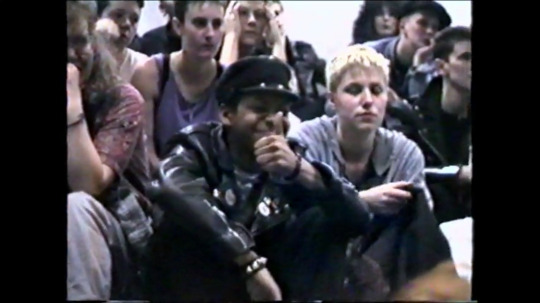
Rebel Dykes (2021) dir. Harri Shanahan & Sian Williams
#i love this shot it's so cute#rebel dykes (2021)#rebel dykes#harri shanahan#sian williams#butch#leatherdykes#dykes on film#documentary#dyke kitsch etagere
76 notes
·
View notes
Link
Chapters: 3/?
Fandom: Stargate SG-1
Rating: Teen And Up Audiences
Warnings: No Archive Warnings Apply
Relationships: Samantha "Sam" Carter/Jack O'Neill, Daniel Jackson/Sha're (Stargate)
Characters: Jack O'Neill, Samantha "Sam" Carter, Jacob Carter, Pete Shanahan, Janet Fraiser (Stargate), Daniel Jackson (Stargate), Sha're (Stargate), George Hammond, Harry Maybourne, Cassandra Fraiser
Additional Tags: Alternate Universe, Slow Burn, Angst, Romance
Summary:
Jack O'Neill, who owns an apple farm in rural Maine, finds his life turned upside down when Samantha Carter returns after a ten year absence.
Chapter 3 is up!
9 notes
·
View notes
Text
2020 Olympics Ireland Roster
Boxing
Brendan Irvine (Belfast, U.K.)
Kurt Walker (Lisburn, U.K.)
Aidan Walsh (Belfast, U.K.)
Emmett Brennan (Dublin)
Kellie Harrington (Dublin)
Michaela Walsh (Belfast, U.K.)
Aoife O’Rourke (Castlerea)
Canoeing
Liam Jegou (Huningue, France)
Gymnastics
Rhys McClenaghan (Dublin)
Meg Ryan (Cork)
Pentathlon
Natalya Coyle (Dublin)
Sailing
Robert Dickson (Dublin)
Sean Waddilove (Dublin)
Annalise Murphy (Rathfarnham)
Swimming
Daniel Wiffen (Armagh)
Darragh Greene (Dublin)
Shane Ryan (Haverford Township, Pennsylvania)
Brendan Hyland (Dublin)
Finn McGeever (Ballina)
Jack McMillan (Belfast, U.K.)
Mona McSharry (Camp)
Danielle Hill (Newtownabbey, U.K.)
Ellen Walshe (Dublin)
Taekwondo
Jack Woolley (Dublin)
Athletics
Marcus Lawler (Carlow)
Leon Reid (Bath, U.K.)
Mark English (Letterkenny)
Andrew Coscoran (Balbriggan)
Thomas Barr (Dunmore East)
David Kenny (Farranfore)
Brendan Boyce (Letterkenny)
Alex Wright (London, U.K.)
Dr. Paul Pollock (Holywood, U.K.)
Stephen Scullion (Belfast, U.K.)
Kevin Seaward (Anstey, U.K.)
Cillin Greene (Dublin)
Chris O’Donnell (Sligo)
Phil Healy (Ballineen)
Síofra Büttner-Cléirigh (Dublin)
Nadia Power (Dublin)
Louise Shanahan (Cork)
Sarah Healy (Monkstown)
Ciara Mageean (Portaferry, U.K.)
Sarah Lavin (Lisnagry Townland)
Michelle Finn (Castlemagner)
Eilish Flanagan (Gortin)
Aoife Cooke (Cork)
Fionnuala McCormack (Wicklow)
Sophie Becker (Wexford)
Badminton
Nguyễn Nhật (Dublin)
Cycling
Eddie Dunbar (Banteer)
Dan Martin (Girona, Spain)
Nicho Roche (Conflans-Sainte-Honorine, France)
Mark Downey (Dromore, U.K.)
Felix English (Brighton, U.K.)
Emily Kay (Bromsgrove, U.K.)
Shannon McCurley (Melbourne, Australia)
Diving
Oliver Dingley (Harrowgate, U.K.)
Tanya Watson (Dublin)
Equestrian
Austin O’Connor (Cork)
Sam Watson (Clonmel)
Bertram Allen (Hünxe, Germany)
Darragh Kenny (Belmont)
Cian O’Connor (Navan)
Shane Sweetnam (Wellington, Florida)
Heike Holstein (Dublin)
Sarah Ennis (Dunboyne)
Field Hockey
Elizabeth Murphy (Dublin)
Ayeisha McFerran (Larne)
Zara Malseed (Dublin)
Michelle Carey (Dublin)
Roisin Upton (Limerick)
Nikki Evans (Clonskeagh)
Katie Mullan (Coleraine)
Shirley McCay (Drumquin)
Megan Frazer (Derry, U.K.)
Lena Tice (Basingstoke, U.K.)
Naomi Carroll (Cratloe)
Hannah McLoughlin (Dublin)
Chloe Watkins (Killiney)
Lizzie Colvin (Portadown)
Nikki Daly (Dublin)
Hannah Matthews (Dublin)
Sarah Hawkshaw (Dublin)
Anna O’Flanagan (Rathgar)
Deirdre Duke (Ballycanew)
Sarah McAuley (Dublin)
Golf
Shane Lowry (Jupiter, Florida)
Rory McIlroy (Jupiter, Florida)
Leona Maguire (Cavan)
Stephanie Meadow (Jordanstown, U.K.)
Judo
Benjamin Fletcher (Wokingham, U.K.)
Megan Fletcher (Wokingham, U.K.)
Rowing
Ronan Byrne (Cork)
Philip Doyle (Banbridge, U.K.)
Fintan McCarthy (Skibbereen)
Paul O’Donovan (Lisheen)
Sanita Pušpure (Ballincollig)
Aoife Casey (Cork)
Margaret Cremen (Rochestown)
Aileen Crowley (Killorglin)
Monika Dukarska (Killorglin)
Aifric Keogh (Furbo)
Eimear Lambe (Cabra)
Fiona Murtagh (Galway)
Emily Hegarty (Skibbareen)
Rugby
Jack Kelly (Dublin)
Adam Leavy (Dublin)
Harry McNulty (Cashel)
Foster Horan (Gorey)
Ian Fitzpatrick (Ratoath)
Billy Dardis (Dublin)
Jordan Conroy (Tullamore)
Greg O’Shea (Limerick)
Mark Roche (Dublin)
Terry Kennedy (Dublin)
Hugo Lennox (Maynooth)
Gavin Mullin (Dublin)
Bryan Mollen (Dublin)
Shooting
Derek Burnett (Westmeath)
Triathlon
Russell White (Banbridge, U.K.)
Carolyn Hayes (Wicklow)
#Sports#National Teams#Ireland#Fights#Boxing#U.K.#Races#Boats#France#Pennsylvania#Spain#Australia#Animals#Germany#Florida#Hockey#Golf
4 notes
·
View notes
Video
vimeo
[ Bury Peri — Episode 1 (Season 2) ]
BURY PERI is back for another season of fun times at Perisher Resort.
Riders: Alex Brookes, Beau Fisher, Jake Shanahan, Joss McAlpin, Russell Fortune, and Sean Macphee.
Film/Edit: Jackson Lock (@jiksonn)
Music: Harry Sarin
#Bury Peri#Episode 1#Season 2#Perisher Resort#Perisher parks#Jackson Lock#Boardworld#Harry Sarin#Alex Brookes#Beau Fisher#Jake Shanahan#Joss McAlpin#Russell Fortune#Sean Macphee
1 note
·
View note
Text
oh my god WHAT happened to Shanahan’s hair ??? he looks like the fucking eyeball guy from harry potter sbksvdjdj
3 notes
·
View notes